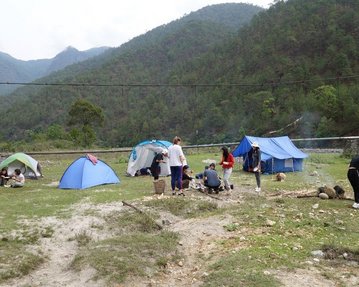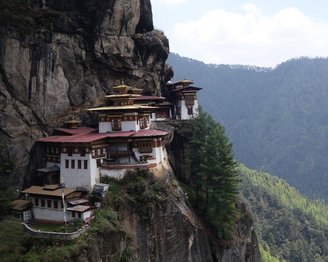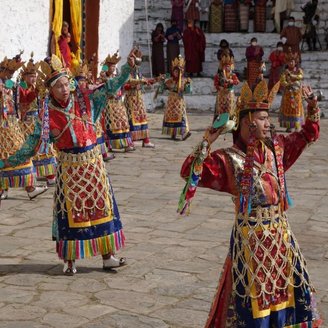
Lucas Leitz, a student of International Business, is studying for five months at the Royal Thimphu College in Bhutan. Today he tells us how he prepared for his stay abroad.
Lucas Leitz, a student of International Business, is studying for five months at the Royal Thimphu College in Bhutan. Today he tells us how he prepared for his stay abroad.
If you plan to come to Bhutan for your semester abroad, there are some things you should know in advance regarding the preparation. For one, you should know that the bureaucratic requirements for the application are quite extensive. In my case, the application email had a total of 14 documents attached, these include the usual CV and motivational letter but beyond that many forms required by RTC and many approval forms from SRH. Some are required by RTC and some others for the Visa applications. So be ready to fill out and prepare a lot of paperwork. In my experience, making sure that you adhere to all the requirements and fill out all the forms properly from the start, makes the entire process much smoother. In addition, having hard copies of all the essential documents readily available at the check-in at the departure airport can save a lot of hassle. During the height of lockdowns and travel restrictions this was surely amplified, but travel and visa restrictions to Bhutan are notoriously tough. In my case I got lucky, but for three of the six other exchange students going to RTC, complications at the initial check-in led to them not being allowed to board and having to wait a whole week to get the next flight.
Culturally there are also a few things worth pointing out. For one, you should of course be ready to adapt. In Bhutan the most notable cultural traits worth knowing before coming are that people here are very non-confrontational and collectivistic in nature. This means that conflict will be avoided at all cost and when someone disagrees with you they will not necessarily voice their opinions, so you will have to read between the lines a bit. The collectivist trait is great, as you will always have at least one friend with you, looking to help you out and in group activities there is always an underlying harmony since everyone looks out for one another and makes sure that everyone is comfortable. This being said, people here are very inclusive, and I have not come across a single case where someone was deliberately excluded. On the other hand, however, this means that it is not necessarily understood if you want to do something alone or by yourself. This may be a bit surprising to most Europeans, as western culture is contrarily rather individualistic.
When it comes to packing, there are some things that may be worth noting, apart from those mentioned in the very extensive packing list prepared by RTC. Not much is needed, however almost all local students wear rubber slippers wherever they go, even while hiking. So, if you are looking to blend in, you may want to bring some along. Additionally, football shoes can really be worth including if you are into playing, as there is a massive football field right on campus. Unsurprisingly hiking and trekking are among the most popular free time activities here in Bhutan, so bringing along adequate hiking gear is advised. In the summer months there is a monsoon season, I have not experienced it yet myself, but some rain gear would be good to have, otherwise the days are usually quite warm, and the nights tend to be a little chilly. There is no need to worry since anything you may need can be bought in town. It may however also be nice to bring along some small gifts from home for the close friends you make here.




Discover your degree programme up close! Book your taster session now!